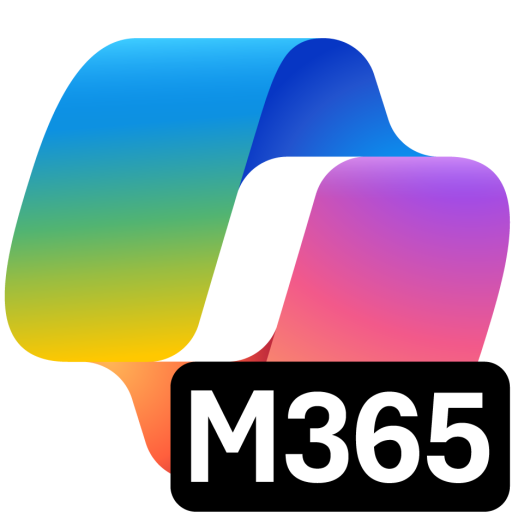
Microsoft Copilot for Government: Complete Buyer's Guide
Enterprise-grade AI for government productivity
Microsoft Copilot for Government represents Microsoft's strategic entry into the government AI productivity market, delivering enterprise-grade artificial intelligence capabilities through familiar Microsoft 365 environments.
Market Position & Maturity
Market Standing
Microsoft maintains significant market share in government productivity software through established Microsoft 365 deployments across federal, state, and local agencies.
Company Maturity
Microsoft allocates billions of dollars annually to AI research and development through partnerships with OpenAI and internal Azure AI initiatives.
Growth Trajectory
Microsoft's continued investment in government-specific AI capabilities and expansion of compliance certifications across international markets.
Industry Recognition
Microsoft's positioning as a leader in enterprise AI platforms by major analyst firms, with particular strength in integration capabilities and enterprise security features essential for government deployments.
Strategic Partnerships
Strategic partnerships with government systems integrators and consulting firms enhance Microsoft's implementation capabilities.
Longevity Assessment
Microsoft's financial stability and enterprise focus provide buyer confidence in continued platform development and support availability over multi-year government contract periods.
Proof of Capabilities
Customer Evidence
A comprehensive case study documents a federal agency achieving 40% reduction in document processing times within six months of Microsoft Copilot for Government deployment [9].
Quantified Outcomes
Customer implementations demonstrate positive return on investment within 12-18 months through labor cost reductions and operational efficiency improvements [9].
Case Study Analysis
DLA Piper established dedicated AI testing teams comparing Microsoft Copilot outcomes versus traditional methods on real legal cases, with custom models addressing FCPA and Anti-Kickback compliance requirements [8].
Market Validation
Government organizations report 30% improvements in compliance monitoring accuracy through automated alert systems and predictive risk analysis [9].
Reference Customers
DLA Piper established dedicated AI testing teams comparing Microsoft Copilot outcomes versus traditional methods on real legal cases [8].
AI Technology
Microsoft Copilot for Government builds upon Microsoft's comprehensive AI infrastructure, leveraging Azure OpenAI Service and proprietary language models specifically configured for government and legal environments.
Architecture
The technical architecture emphasizes security-first design with government-specific compliance protocols, including FedRAMP High authorization [18].
Primary Competitors
Specialized competitors like FiscalNote and Quorum offer deeper functionality for specific use cases like legislative tracking and stakeholder analysis [10][11][12][13].
Competitive Advantages
Microsoft provides immediate familiarity and reduced implementation complexity compared to standalone AI platforms, offering unified interfaces, consistent security protocols, and integrated workflow management [18].
Market Positioning
Microsoft's ability to bundle AI capabilities with existing enterprise agreements creates cost advantages and procurement simplification for government buyers.
Key Features

Pros & Cons
Use Cases
Integrations
Featured In Articles
Comprehensive analysis of AI Political Intelligence & Lobbying Tools for Legal/Law Firm AI Tools for Legal/Law Firm AI Tools professionals. Expert evaluation of features, pricing, and implementation.
How We Researched This Guide
About This Guide: This comprehensive analysis is based on extensive competitive intelligence and real-world implementation data from leading AI vendors. StayModern updates this guide quarterly to reflect market developments and vendor performance changes.
39+ verified sources per analysis including official documentation, customer reviews, analyst reports, and industry publications.
- • Vendor documentation & whitepapers
- • Customer testimonials & case studies
- • Third-party analyst assessments
- • Industry benchmarking reports
Standardized assessment framework across 8 key dimensions for objective comparison.
- • Technology capabilities & architecture
- • Market position & customer evidence
- • Implementation experience & support
- • Pricing value & competitive position
Research is refreshed every 90 days to capture market changes and new vendor capabilities.
- • New product releases & features
- • Market positioning changes
- • Customer feedback integration
- • Competitive landscape shifts
Every claim is source-linked with direct citations to original materials for verification.
- • Clickable citation links
- • Original source attribution
- • Date stamps for currency
- • Quality score validation
Analysis follows systematic research protocols with consistent evaluation frameworks.
- • Standardized assessment criteria
- • Multi-source verification process
- • Consistent evaluation methodology
- • Quality assurance protocols
Buyer-focused analysis with transparent methodology and factual accuracy commitment.
- • Objective comparative analysis
- • Transparent research methodology
- • Factual accuracy commitment
- • Continuous quality improvement
Quality Commitment: If you find any inaccuracies in our analysis on this page, please contact us at research@staymodern.ai. We're committed to maintaining the highest standards of research integrity and will investigate and correct any issues promptly.